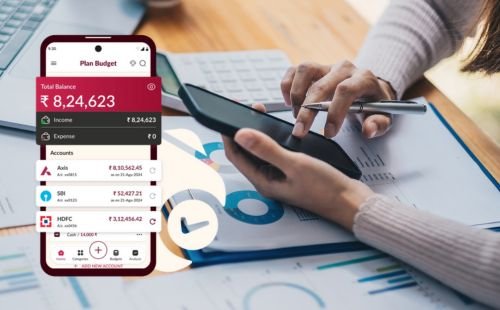
Have you ever asked yourself why you need a budget?
The simple answer is to protect your money.
Creating a budget might seem challenging, but it’s time well spent since—in the end—it will benefit you in many ways. Read on to see our top reasons why you need a to plan budget!
What is a budget?
A plan for distributing/utilising your money over a given period of time is called a budget. Your budget will serve as a financial guide to help make sure you're putting enough money in reserve to pay bills, build up savings, and have funds on hand to cover unforeseen expenses.
While it might be difficult at first, taking the time to plan a budget—and execute it—is a mandatory step to financial security. Let's see why:
The Six Reasons to Stick to a Budget
1. Meet Your Financial Objectives
Planning a budget allows you to decide where the money will go and then spend it appropriately, which helps you create a plan to achieve your financial objectives. Suppose you’re wishing to buy a house; this budget can motivate you regularly to save a certain amount of money every month that will eventually become a down payment on your dream home someday.
With a budget, it’s important to stick to spending carefully and check on how you’re doing every month.
2. Cut Down on Spending to Save More
Overspending is more likely to occur when you don't monitor your finances. Using a budget forces you to reconsider your spending because you have already reserved money for certain uses. As a result, you're more likely to think things through before spending!
3. Make Space for Modifications
Be ready for any unexpected emergency or make space for changes in your financial circumstances. If you're already budgeting, you'll have set aside money specifically for these kinds of situations to prevent them from becoming financially disastrous. This reassurance will also help reduce some of the stress around paying for unexpected expenses!
4. Pay Attention to Credit Cards
Credit cards can be a path of temptation when it comes to overspending, so be careful about maintaining them. For the purpose of tracking and tallying credit card purchases, you can establish a distinct budget category. Additionally, be sure to pay your credit card bills on time since the interest rates alone can add up and definitely increase your debt.
5. Make More Money
If your employer makes contributions towards your retirement savings, include it in your budget to maximise your income! 10% of your monthly income should ideally be set aside for retirement. Ask your employer if they match your contributions to double the savings. This is an added bonus.
Budgeting your retirement funds with an IRA is the best option if you work for yourself because your contributions will be protected and will continue to earn interest until you retire.
6. Keep Complete Command of Your Finances
Gaining control over your finances through budgeting will ultimately increase your sense of security regarding your spending decisions. Tracking your spending and saving patterns is made simple with online banking, which is very beneficial when sticking to a budget.
GO AHEAD AND START SAVING!
Now that you understand the significance of having (and adhering to!) a budget, it's time to make one.
Don’t worry, it’s not as complicated as you might think, especially with the Plan Budget App to help you get started! Click below to download the app and build your budget, along with other helpful information in our financial literacy resources.